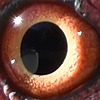HOME | DD
 TheBootesArtVoid — Raven Spots More Chicken Nuggies (Wild)
TheBootesArtVoid — Raven Spots More Chicken Nuggies (Wild)

#animal #animalphotography #animals #australia #australian #australiananimals #australianwildlife #bird #birds #natural #nature #naturephotography #photo #photography #photographyanimals #photographynature #photographyphoto #photos #raven #ravens #wildlife #wildlifeart #wildlifephotography #australianbirds #birdphotography #wildlifereferencephoto #thebootesartvoid
Published: 2023-05-10 21:15:16 +0000 UTC; Views: 1169; Favourites: 97; Downloads: 0
Redirect to original
Description
Species Name: Australian Raven
Species Latin Name: Corvus Coronoides
Alternative Names: Crow
Native To: Southern and Northeastern Australia
Conservation Status: Least Concern
Photo Taken At: Werribee Zoo
Size (Length): 46 - 53cm (18 - 21 inches)
Weight: 650g (1.43lb)
Wingspan: 100cm
Lifespan: 21 Years
Diet: Omnivore, scavenger
Lifestyle: Arboreal, altricial, terrestrial, oviparous, territorial, nomadic
Group Name: Unkindness, treachery, conspiracy
Mating Behavior: Monogamy
Reproduction Season: July – September
Incubation Period: 20 days
Eggs Per Clutch: 4 – 6 eggs
Baby Name: Chick
Independent Age: 3 - 4 months
Description: The Australian Raven has black plumage of entirely black feathers which under the right lighting can appear glossy at points. They have strong black feet and sharp black beaks used to rip apart carrion/meat and the unsuspecting trash bags filled with refuse. Juvenile Australian Ravens will have a little pink around where their beak connects with the rest of their face. These Juveniles will have dark brown eyes which will gradually change shade and colour as they mature. Young adult Australian Ravens will have white irises with a blue rim around the pupil of their eyes. Over time in older adults this blue will disappear leaving a completely white eye and black pupil. The feathers around the throat of these birds (hackles) are longer than other raven and crow species. The juveniles of these species will often have shorter throat hackles in comparison to the adults. There are about 3 species of raven in Australia and 3 species of crow in Australia. these species share a lot of similarities in how they look, as a result it can be very difficult to tell these species apart.
Diet: The Australian Raven is omnivorous and their diet will vary greatly. Their diet can consist of various grains, fruits, insects, small animals, eggs, refuse/waste, and carrion/meat. Though the Australian Raven is omnivorous they have a strong preference for eating meat. Due to their omnivorous nature however, they can be often spotted frequenting various waste bins or dumps scavenging for discarded food of various types. They can also be spotted on the sides of busy roads and highways waiting to feed on the carcasses of animals that have been hit by cars.
Behaviour: The Australian Raven will extend the long feathered throat hackles as they make their various calls. Their territorial calls will consist of slow yet high series similar to "ah-ah-aaah" as they stand in a horizontal position. This call will be louder if the raven feels that another is intruding on their territory. A flock of Australian Ravens will tend to make a high pitched "Caa" when flying overhead to indicate that they are just passing through. There are other various calls and vocalizations these birds use to signify various messages. These birds will tend to group in flocks but eventually settle down in a mating pair settling their own land of territory. Once they have settled down a piece of territory they will make a messy bowl shaped nest made up of sticks.
Further Reading (general information):
Wikipedia: en.wikipedia.org/wiki/Australi…
Birdlife: www.birdlife.org.au/bird-profi…
Animalia: animalia.bio/australian-raven
Australian Museum: australian.museum/learn/animal…
Related content
Comments: 8

👍: 1 ⏩: 1

👍: 0 ⏩: 0

👍: 1 ⏩: 1

👍: 1 ⏩: 0

👍: 1 ⏩: 1

👍: 0 ⏩: 0

👍: 1 ⏩: 1

👍: 1 ⏩: 0


























